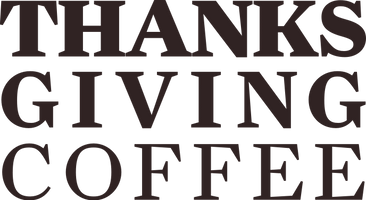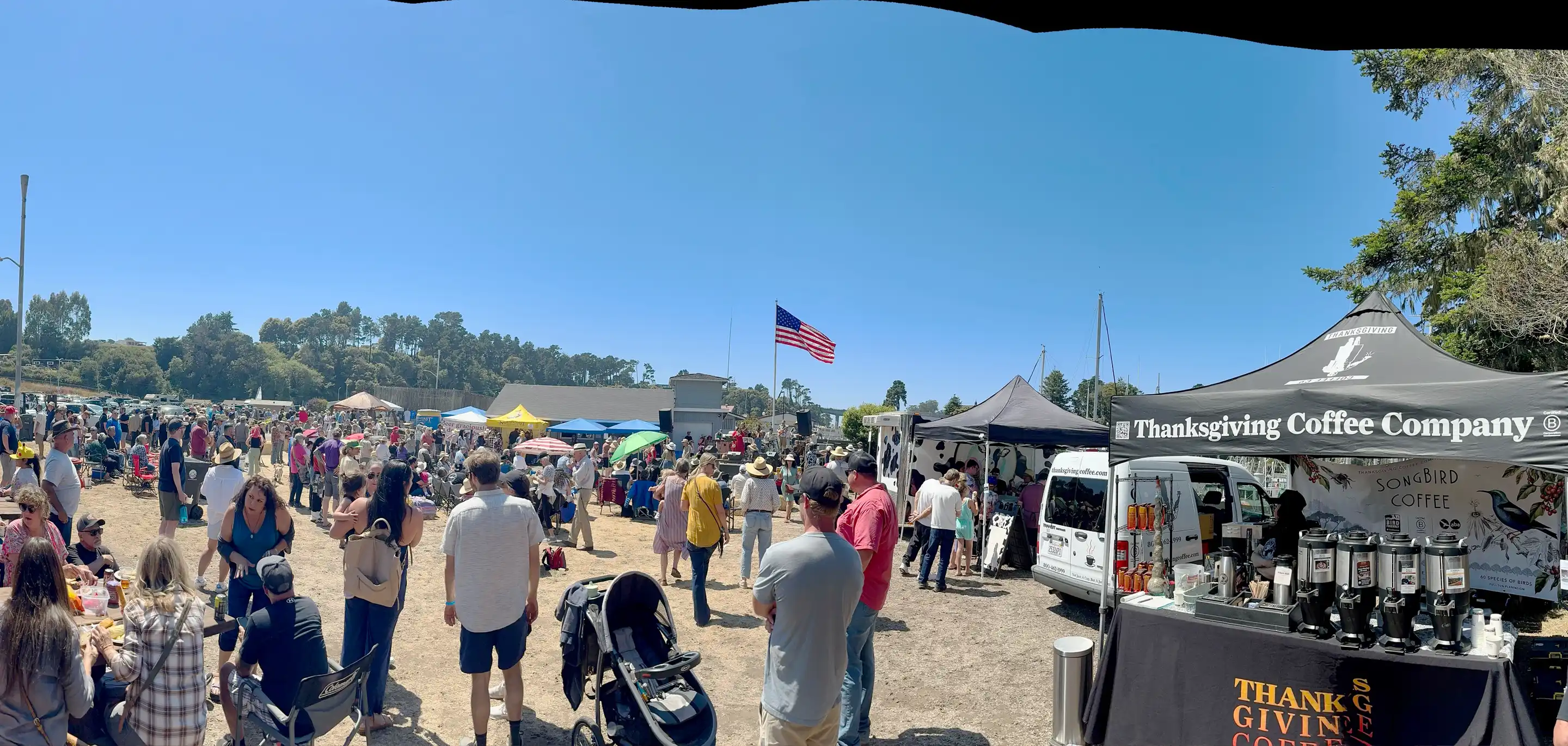
Our Blog
The Worlds Largest Salmon BBQ 2024
View BY :
The 53rd annual World's Largest Salmon BBQ happened again this year on July 6th, and once again - Thanksgiving Coffee Company was there.
Carlos Hernandez & Sienna Reno enjoying Thanksgiving Coffee
The 53rd annual World's Largest Salmon BBQ
This annual event raises funds for restoring salmon habitat with the goal of returning the salmon population to a sustainable balance. Currently, the salmon fishing season is closed in California for the second year in a row to allow the salmon population to rebuild. It has been deeply affected over the last several years due to drought, spawning ground habitat damage, and other factors. For the second year in a row the half-ton of salmon that was donated for the BBQ originated from Alaska. Dozens of local and regional sponsors come together to make this event happen!
We introduced Nitro Coffee with a creamy mouthfeel and cooling chill!
In addition to serving hot specialty coffee as usual, we raised our game by serving multiple gallons of 4 varieties - Ethiopian Natural light roast, Paul's Blend medium roast, Noyo Harbor French very dark roast, and Royal Decaf. Additionally, nearly 3000 attendees were introduced to our new Nitro cold coffee with its creamy mouthfeel and cooling chill!
Jennifer Brown at the Thanksgiving Coffee Company Booth
It was a very hot day, by Fort Bragg standards (about 75°) so many of the attendees requested to enjoy their coffee over ice, and we were happy to oblige. Jennifer and I made everyone feel welcome and well caffeinated. Two other local B Corporations were represented as well; North Coast Brewing Company and Bonterra organic wines.
The very happy Bonterra Organic Estates wines booth, another B Corp in Mendocino County.
The North Coast Brewing Company booth
One of the acts "West of Nowhere" featuring from left to right; Dan Mello, Phil Dunn, Sean Van Buskirk
It's our annual privilege to build a pop-up coffee shop in the middle of a field on the shores of Noyo Harbor, but this year I took it to an even higher level - I emceed the event, thanking the dozens of sponsors and introducing the 10 acts that performed that day.
Text
Joe Seta as Emcee of the Salmon BBQ this year. Photo by Eric Fngal
Recommended Reading
Back to the Blog-
![Redwood Coast Recreation Center Benefit]()
Redwood Coast Recreation Center Benefit
On Saturday, August 17, a benefit was held in the Sea Ranch Del Mar Center to help raise funds for the Redwood Coast Recreation Center which was lost in a tragic arson fire. This event was joyous and delicious with an array of sweet treats and decadent cheeses, to pair with wine and, of course, great coffee from us.
Cheeses From Penny Royal Farm, Valley Ford Creamery, Marin French Cheese, and Bohemian Creamery
Wines from Handley Cellars, Woodenhead, Wild Hog, Fort Ross, and Pacific Sar Wineries
Desserts from Franny's Cup and Saucer
Goodies from Trinks Cafe and 2 Fish Bakeries
Thanksgiving Coffee provided a tasty lineup, including:- A single origin light roast from Guatemala
- A medium roast blend with our award-winning Mocha Java
- Our SongBird Colombian dark roast, plus
- A delicious decaffeinated offering – Royal Decaf.
Once the attendees were fed and well caffeinated, the silent auction was where the bulk of the funds were raised, including artisan jewelry, woodwork, textile and glass art, plus cases of wine.The beautiful surroundings were most appreciated and, even though we had a rare summer drizzle (more than the expected coastal weather of “Fogust”), the sun broke through at the end and sent us all heading home with appreciation and looking forward to the return of the Redwood Coast Recreation Center.Upcoming Community Events for Thanksgiving Coffee Company
- Great Day in Elk, August 24, at the Community Center in Elk/Greenwood
- Paul Bunyan Days in Fort Bragg over the Labor Day Weekend
CommunityRedwood Coast Recreation Center Benefit
read more -
![Art in The Gardens 2024]()
The largest annual fundraiser for The Mendocino Coast Botanical Gardens happened on Saturday and Sunday, August 3rd and 4th... and Thanksgiving Coffee Company was there!
Art in The Gardens 2024
The 31st year of Art in the Gardens was a special weekend which brought together a diverse audience, including art enthusiasts, music lovers, local community members, and dedicated volunteers. Visitors were able to see the stunning dahlias in full bloom, enjoy local beer, wine, food, coffee, live music, ariel and dance performances, and support various artisans who generously donate a portion of their sales to the Gardens.
With more than 2,200 visitors and generous donors contributing a total of $74,367.96 (after expenses!) it's clear that Art in the Gardens continues to be a resounding success. This level of support is a testament to the event's popularity and the strong backing of the community. The funds raised will undoubtedly have a significant positive impact on the Mendocino Coast Botanical Gardens, allowing for continued growth and improvements.
Jennifer Brown at the Thanksgiving Coffee Company booth
Art in The Gardens in full swing
"47 Acres to the Sea", the Mendocino Coast Botanical Gardens is a local treasure!
Circus Mecca took flight!
Upcoming Community Events for Thanksgiving Coffee Company
- Great Day in Elk, August 24, at the Community Center in Elk/Greenwood
- Paul Bunyan Days in Fort Bragg over the Labor Day Weekend
CommunityArt in The Gardens 2024
read more -
![A Just Cup: The Story Behind the First Environmental Committee in Specialty Coffee]()
In the early years of specialty coffee, before “sustainability” was a familiar word, a handful of roasters and importers began to ask for more of the coffee trade. What if quality wasn’t just in the cup, but in the care behind it? What if environmental responsibility and economic fairness were part of the definition of great coffee?
A Just Cup: The Story Behind the First Environmental Committee in Specialty Coffee
This is the story of how those questions led to the creation of the first Environmental Committee within the Specialty Coffee Association of America (SCAA) - and how one small roaster on the Mendocino Coast helped spark that shift. Thanksgiving Coffee Company's co-founder Paul Katzeff was among those early voices. His journey began with a simple desire to source flavorful beans and quickly evolved into something much deeper.
Paul Katzeff in the early days with original coffee roaster
From Flavor to Justice: Nicaragua, 1985
In 1985, Paul traveled to Nicaragua at the request of a nurse who had returned from the war zone with a sample of coffee and a plea: support small-scale farmers by helping them sell their crop. At the time, Paul was President of the newly formed SCAA and still searching for “the perfect cup.”
But once he arrived in the mountains, what he witnessed changed him forever: families living without electricity or clean water, cooking in smoke-filled homes, doing their best to survive. “Coffee flavor was no longer my obsession,” Paul later said. “I came home and changed our motto from ‘In Search of the Perfect Cup’ to ‘Not Just a Cup, But a Just Cup.’”
What began as a sourcing trip became a calling.
Women cooking in Nicaragua Photo by Paul Katzeff
Roasting Coffee, Nicaragua style, 1985
Elder Grinding Coffee - photo by Paul Katzeff
Paul Playing Ball, Nicagarua 1985
Rewriting the Rules of Trade
After President Reagan imposed an embargo on Nicaragua, Paul rerouted coffee shipments through Canada, where a Fair Trade roaster helped him finish the coffee and legally import it to the U.S. He then launched one of the first cause-driven blends: Café por la Paz (Coffee for Peace), donating 25 cents from every bag to support farming cooperatives in Nicaragua.
These weren’t marketing strategies. They were moral commitments, rooted in firsthand experience and a belief that business could be a tool for justice.
“We didn’t call it sustainability,” Paul recalls. “We just did the work.”
From Observation to Action
Throughout the late 1980s and 1990s, Thanksgiving Coffee took concrete environmental action.
- We financed the planting of 75,000 shade trees in Ethiopia through Trees for the Future.
- We converted our delivery fleet to biodiesel, the first commercial fleet in California to do so.
- Our team paid attention to soil health, biodiversity, and forest preservation before there were certifications that would then require it.
The company soon began receiving awards and recognition for our work.
Thanksgiving Coffee Company and Delivery Van circa 1990's
Solidaridad Coop, Shade Grown Song Bird Coffee Farmers - Nicaragua 1996 photo by Paul Katzeff
Beyond Organics: A New Framework
In 1996, Paul presented a groundbreaking green coffee buying framework at the first Sustainability and Coffee Conference hosted by the Smithsonian. Called “Beyond Organics,” the system recognized a range of environmental and social practices: shade-grown coffee, indigenous land stewardship, cooperative participation, biodiversity protection, and more.
The idea was simple: not all progress looks the same, but every step matters.
Read Original Green Buying Criteria here
Building a Committee with a Conscience
As more members of the SCAA began asking hard questions, Paul and a handful of allies proposed forming the first Environmental Committee. It was an uphill battle.
“There was resistance,” Paul admits. “Many in the industry believed a trade association wasn’t the place for politics or activism. But we weren’t pushing politics. We were elevating values.”
That committee—eventually renamed the Sustainability Committee—brought structure, credibility, and accountability to the growing movement. It evaluated certifications, supported origin-based initiatives, and helped small brands tell honest, impactful stories.
2000: A Defining Year
When Paul chaired the SCAA’s 12th Annual Conference in San Francisco, he centered the event around three themes: Quality, Sustainability, and Social Responsibility. It marked a turning point.
During his keynote, he challenged the industry to consider the human cost of low coffee prices. He announced a USAID grant to build cupping labs in Nicaragua, giving farmers tools to taste, evaluate, and price their own coffee for the first time.
The message was clear: coffee is about people.
Paul with a Campasino and connecting with the children of Nicaragua
What We Built Together
Since then, the specialty coffee industry has changed. Terms like fair trade, carbon-neutral, and regenerative are more common. But behind those terms are decades of work from small companies like ours.
Thanksgiving Coffee:
- Supported origin cooperatives through financial transparency
- Donated to reforestation and clean water initiatives
- Converted our delivery fleet to biofuel
- Featured farmers on our packaging before it was common practice
- Advocated for certifications with rigor, not shortcuts
Why This Story Matters
As the coffee industry continues to face global challenges such as climate change, greenwashing, and pricing instability - it helps to remember where the values came from.
We share this story to honor the path we’ve walked with our partners, our customers, and our peers. We’re still learning. We’re still evolving. And we’re still committed to using coffee as a tool for possibility.
Shop the Coffees That Carry This Legacy
Paul’s Blend – Founders’ Legacy Roast
A bold, meaningful medium-dark roast named for our co-founder, honoring 50+ years of leadership in coffee and justice.Or Try the Origin Masters
These small-lot coffees are from pioneering cooperatives including: UCA Miraflor and CECOCAFEN
the co-architects of the world’s first farmer-owned cupping labs.Sold outSold outSold out
Lavender Grace is the Sustainability Consultant for Thanksgiving Coffee Company
sustainabilityA Just Cup: The Story Behind the First Environmental Committee in Specialty Coffee
read more -
![Rwanda Resilience in Every Cup: Coffee with a Climate Impact]()
Taste the Bright Future of Coffee
Our Rwanda Single Origin offers more than just incredible flavor—it’s a coffee that supports community resilience. Grown at high elevations in Musasa, Rwanda, by the Dukunde Kawa Cooperative.This medium roast delivers:- Tasting Notes: Vibrant citrus, delicate florals, and a smooth honey finish
- Mouthfeel: Silky and refreshing, with a bright, clean finish
- Perfect for: Pour over, drip, or French press—ideal for your morning clarity ritual
Rwanda Single Origin Coffee with citrus, floral, and honey tasting notes from Dukunde Kawa.
Why Dukunde Kawa Coffee Matters
Dukunde Kawa means “Let’s love coffee”—a name that reflects their commitment to people, planet, and flavor. This Rwandan cooperative is internationally recognized for combining exceptional quality with climate action.
Here's what climate resilience in action looks like:- 2,500+ clean cook stoves installed, reducing wood use by 70%
- Tree nurseries restoring biodiversity and combating soil erosion
- Women’s leadership with 80% women participation at the Ruli washing station
Every bag of Rwanda Single Origin supports these impactful programs, making every cup an act of regeneration and reciprocity.
Sources: Dukunde Kawa Sustainability Programs and Thanksgiving Coffee Dukunde Kawa Story
Rwanda Coffee Farm
Brew a Better Morning, Support a Better Future
Every time you brew Rwanda Single Origin, you:- Support healthier homes with clean cook stove initiatives
- Restore forests and farms through reforestation efforts
- Empower women farmers, nurturing local leadership
Recipe: Cold Brew for Summer Brightness
Show off the bright notes of Rwanda Single Origin with this easy cold brew:- Coarse grind 1 cup of beans
- Steep in 4 cups of filtered water for 12-14 hours
- Serve over ice with a twist of fresh orange peel
Refreshing, vibrant, and perfect for a summer coffee ritual.
Explore More Flavor Stories
Lavender Grace is the Sustainable Ecology Advocate for Thanksgiving Coffee Company
sustainabilityRwanda Resilience in Every Cup: Coffee with a Climate Impact
read more
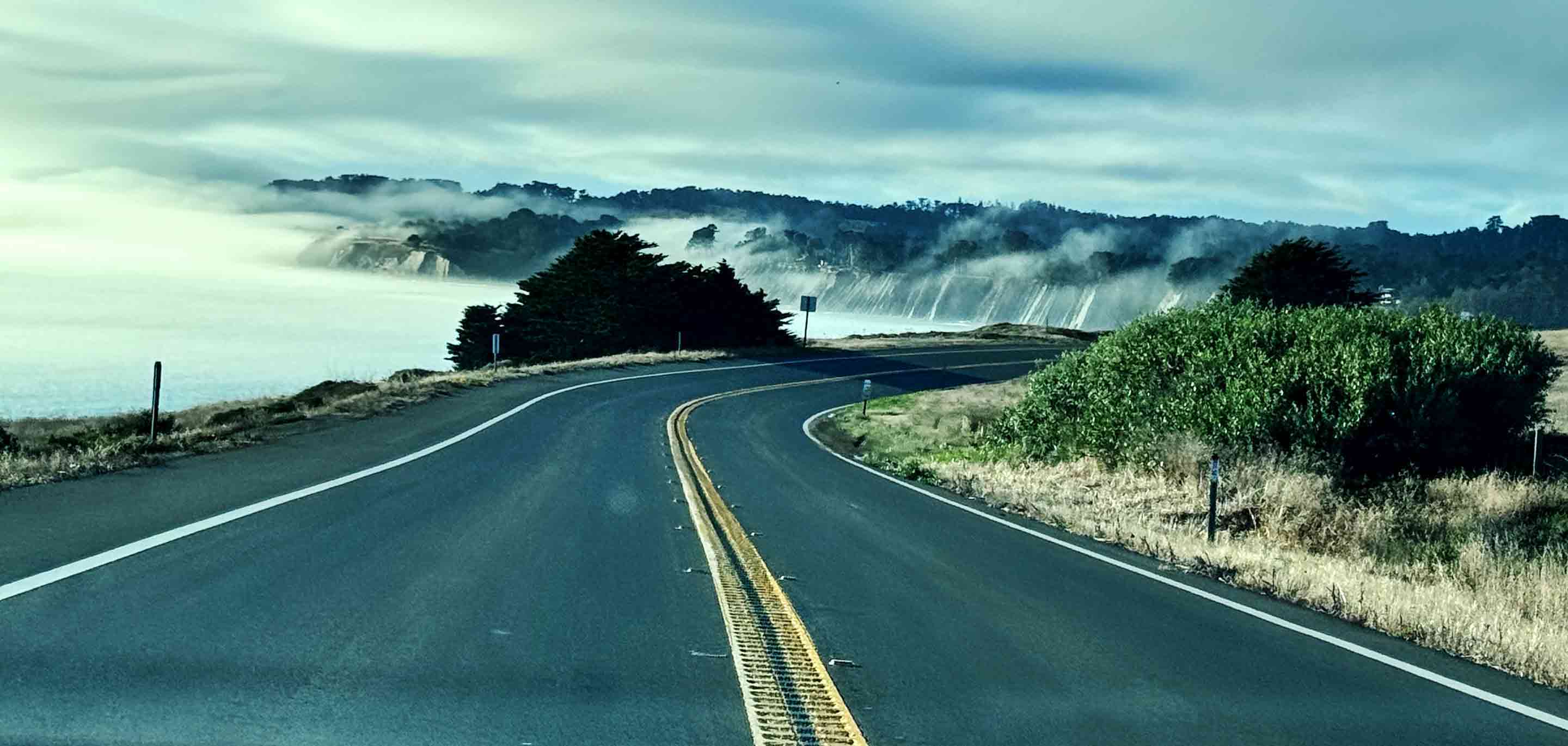
Redwood Coast Recreation Center Benefit
On Saturday, August 17, a benefit was held in the Sea Ranch Del Mar Center to help raise funds for the Redwood Coast Recreation Center which was lost in a tragic arson fire. This event was joyous and delicious with an array of sweet treats and decadent cheeses, to pair with wine and, of course, great coffee from us.
Cheeses From Penny Royal Farm, Valley Ford Creamery, Marin French Cheese, and Bohemian Creamery
Wines from Handley Cellars, Woodenhead, Wild Hog, Fort Ross, and Pacific Sar Wineries
Desserts from Franny's Cup and Saucer
Goodies from Trinks Cafe and 2 Fish Bakeries
- A single origin light roast from Guatemala
- A medium roast blend with our award-winning Mocha Java
- Our SongBird Colombian dark roast, plus
- A delicious decaffeinated offering – Royal Decaf.
Upcoming Community Events for Thanksgiving Coffee Company
- Great Day in Elk, August 24, at the Community Center in Elk/Greenwood
- Paul Bunyan Days in Fort Bragg over the Labor Day Weekend
Redwood Coast Recreation Center Benefit
read more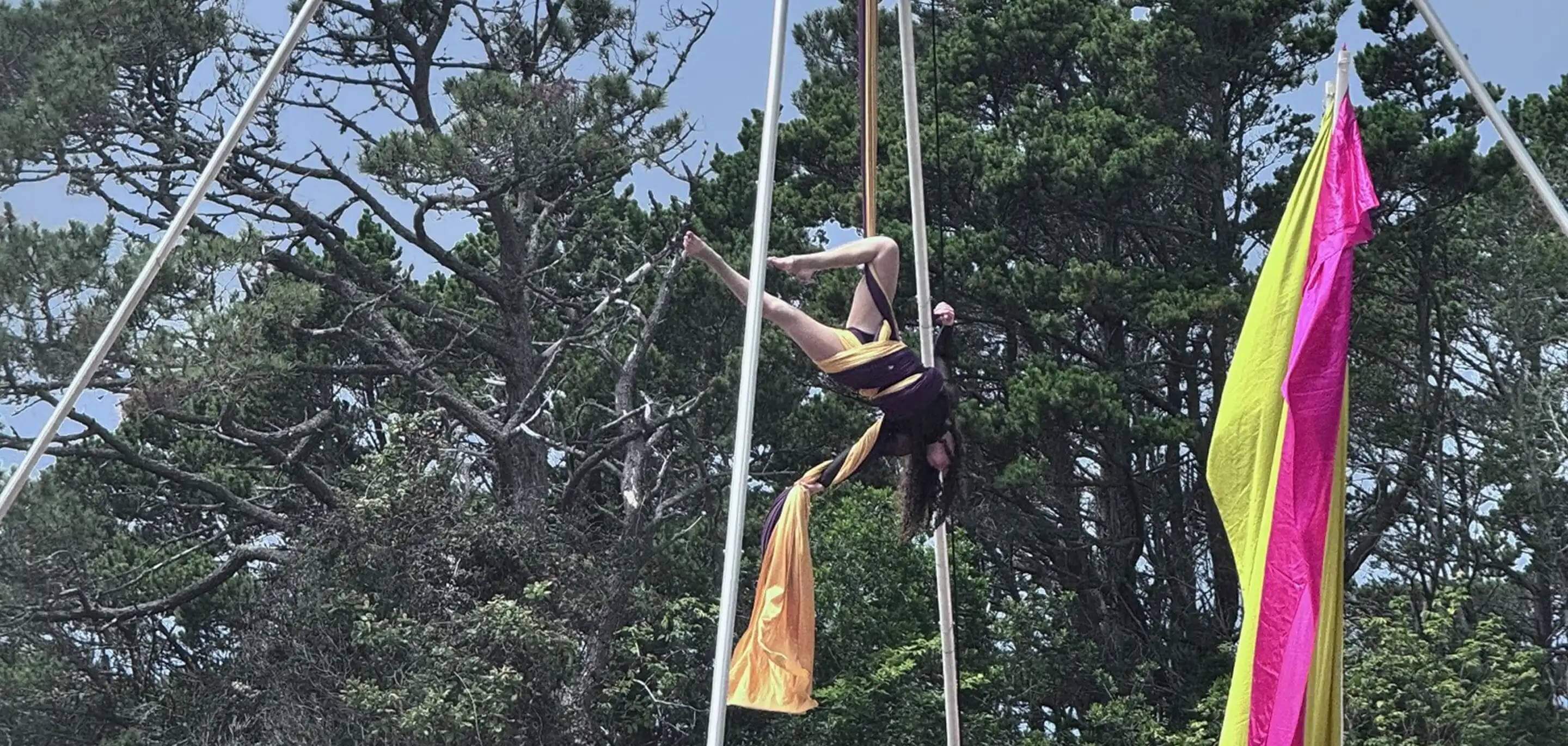
The largest annual fundraiser for The Mendocino Coast Botanical Gardens happened on Saturday and Sunday, August 3rd and 4th... and Thanksgiving Coffee Company was there!
Art in The Gardens 2024
The 31st year of Art in the Gardens was a special weekend which brought together a diverse audience, including art enthusiasts, music lovers, local community members, and dedicated volunteers. Visitors were able to see the stunning dahlias in full bloom, enjoy local beer, wine, food, coffee, live music, ariel and dance performances, and support various artisans who generously donate a portion of their sales to the Gardens.
With more than 2,200 visitors and generous donors contributing a total of $74,367.96 (after expenses!) it's clear that Art in the Gardens continues to be a resounding success. This level of support is a testament to the event's popularity and the strong backing of the community. The funds raised will undoubtedly have a significant positive impact on the Mendocino Coast Botanical Gardens, allowing for continued growth and improvements.
Jennifer Brown at the Thanksgiving Coffee Company booth
Art in The Gardens in full swing
"47 Acres to the Sea", the Mendocino Coast Botanical Gardens is a local treasure!
Circus Mecca took flight!
Upcoming Community Events for Thanksgiving Coffee Company
- Great Day in Elk, August 24, at the Community Center in Elk/Greenwood
- Paul Bunyan Days in Fort Bragg over the Labor Day Weekend
Art in The Gardens 2024
read more
“CasparFest”
The annual fundraiser for The Caspar Community Center happened on Sunday, July 21st...and Thanksgiving Coffee Company was there!
Jennifer and Joe serving Thanksgiving Coffee
CasparFest 2024
The annual major fundraiser for The Caspar Community Center “CasparFest” happened on Sunday the 21st... and Thanksgiving Coffee Company was there! Hundreds of attendees including the local “Casparados” were in attendance with many other friends from around the area and tourists as well.
The town of Caspar, a former lumber mill and cattle ranch, is a small community, halfway between Fort Bragg and the Village of Mendocino, surrounded on three sides by CA State Parks (Jughandle, Jackson State Demonstration Forest and Russian Gulch) and the fourth side is bordered by the Pacific Ocean. Officially, Caspar is an unincorporated part of Mendocino County with a population of about 500 as per the 2020 census. I'm almost positive that every single one of them was there - either helping to make food, serve guests, or helping in other ways to make the magic happen at this largest single fundraiser for their Community Center annually.
Jennifer Brown and Joe Seta at the Thanksgiving Coffee Company booth
Caspar Community Center in full festivities
The Casper Community Center is really the town hub offering an array of classes and a location for events, including concerts, community breakfasts, meetings, and much more.
There was an abundance of vendors. food and music all day from bluegrass, Americana, salsa, folk, Jazz, and other ethnic music with many types of dance including youth from Caspar Ballet and Grupo Folklorico, and general boogieing for 8 hours. Music provided by Tropiqueño, Gwyneth Moreland and Angie Heimann, The Old Growth Jazz Club, and Whiskey Wristwatch.
Tropiqueño inciting the dancers to groove!
Upcoming Community Summer 2024 Events for Thanksgiving Coffee Company
- Mendocino Music Festival - now through July 28 on the Mendocino Headlands
- Art in the Gardens - August 3rd and 4th at the Mendocino Coast Botanical Gardens
- Summer Gardens Concerts with Mendocino Woodwinds Quartet and the Bob Ayres Big Band on Sunday, August 11
- Great Day in Elk, August 24, at the Community Center in Elk/Greenwood
- Paul Bunyan Days in Fort Bragg over the Labor Day Weekend
CasparFest 2024
read more
In the early years of specialty coffee, before “sustainability” was a familiar word, a handful of roasters and importers began to ask for more of the coffee trade. What if quality wasn’t just in the cup, but in the care behind it? What if environmental responsibility and economic fairness were part of the definition of great coffee?
A Just Cup: The Story Behind the First Environmental Committee in Specialty Coffee
This is the story of how those questions led to the creation of the first Environmental Committee within the Specialty Coffee Association of America (SCAA) - and how one small roaster on the Mendocino Coast helped spark that shift. Thanksgiving Coffee Company's co-founder Paul Katzeff was among those early voices. His journey began with a simple desire to source flavorful beans and quickly evolved into something much deeper.
Paul Katzeff in the early days with original coffee roaster
From Flavor to Justice: Nicaragua, 1985
In 1985, Paul traveled to Nicaragua at the request of a nurse who had returned from the war zone with a sample of coffee and a plea: support small-scale farmers by helping them sell their crop. At the time, Paul was President of the newly formed SCAA and still searching for “the perfect cup.”
But once he arrived in the mountains, what he witnessed changed him forever: families living without electricity or clean water, cooking in smoke-filled homes, doing their best to survive. “Coffee flavor was no longer my obsession,” Paul later said. “I came home and changed our motto from ‘In Search of the Perfect Cup’ to ‘Not Just a Cup, But a Just Cup.’”
What began as a sourcing trip became a calling.
Women cooking in Nicaragua Photo by Paul Katzeff
Roasting Coffee, Nicaragua style, 1985
Elder Grinding Coffee - photo by Paul Katzeff
Paul Playing Ball, Nicagarua 1985
Rewriting the Rules of Trade
After President Reagan imposed an embargo on Nicaragua, Paul rerouted coffee shipments through Canada, where a Fair Trade roaster helped him finish the coffee and legally import it to the U.S. He then launched one of the first cause-driven blends: Café por la Paz (Coffee for Peace), donating 25 cents from every bag to support farming cooperatives in Nicaragua.
These weren’t marketing strategies. They were moral commitments, rooted in firsthand experience and a belief that business could be a tool for justice.
“We didn’t call it sustainability,” Paul recalls. “We just did the work.”
From Observation to Action
Throughout the late 1980s and 1990s, Thanksgiving Coffee took concrete environmental action.
- We financed the planting of 75,000 shade trees in Ethiopia through Trees for the Future.
- We converted our delivery fleet to biodiesel, the first commercial fleet in California to do so.
- Our team paid attention to soil health, biodiversity, and forest preservation before there were certifications that would then require it.
The company soon began receiving awards and recognition for our work.
Thanksgiving Coffee Company and Delivery Van circa 1990's
Solidaridad Coop, Shade Grown Song Bird Coffee Farmers - Nicaragua 1996 photo by Paul Katzeff
Beyond Organics: A New Framework
In 1996, Paul presented a groundbreaking green coffee buying framework at the first Sustainability and Coffee Conference hosted by the Smithsonian. Called “Beyond Organics,” the system recognized a range of environmental and social practices: shade-grown coffee, indigenous land stewardship, cooperative participation, biodiversity protection, and more.
The idea was simple: not all progress looks the same, but every step matters.
Read Original Green Buying Criteria here
Building a Committee with a Conscience
As more members of the SCAA began asking hard questions, Paul and a handful of allies proposed forming the first Environmental Committee. It was an uphill battle.
“There was resistance,” Paul admits. “Many in the industry believed a trade association wasn’t the place for politics or activism. But we weren’t pushing politics. We were elevating values.”
That committee—eventually renamed the Sustainability Committee—brought structure, credibility, and accountability to the growing movement. It evaluated certifications, supported origin-based initiatives, and helped small brands tell honest, impactful stories.
2000: A Defining Year
When Paul chaired the SCAA’s 12th Annual Conference in San Francisco, he centered the event around three themes: Quality, Sustainability, and Social Responsibility. It marked a turning point.
During his keynote, he challenged the industry to consider the human cost of low coffee prices. He announced a USAID grant to build cupping labs in Nicaragua, giving farmers tools to taste, evaluate, and price their own coffee for the first time.
The message was clear: coffee is about people.
Paul with a Campasino and connecting with the children of Nicaragua
What We Built Together
Since then, the specialty coffee industry has changed. Terms like fair trade, carbon-neutral, and regenerative are more common. But behind those terms are decades of work from small companies like ours.
Thanksgiving Coffee:
- Supported origin cooperatives through financial transparency
- Donated to reforestation and clean water initiatives
- Converted our delivery fleet to biofuel
- Featured farmers on our packaging before it was common practice
- Advocated for certifications with rigor, not shortcuts
Why This Story Matters
As the coffee industry continues to face global challenges such as climate change, greenwashing, and pricing instability - it helps to remember where the values came from.
We share this story to honor the path we’ve walked with our partners, our customers, and our peers. We’re still learning. We’re still evolving. And we’re still committed to using coffee as a tool for possibility.
Shop the Coffees That Carry This Legacy

Paul’s Blend – Founders’ Legacy Roast
A bold, meaningful medium-dark roast named for our co-founder, honoring 50+ years of leadership in coffee and justice.
Or Try the Origin Masters
These small-lot coffees are from pioneering cooperatives including: UCA Miraflor and CECOCAFEN
the co-architects of the world’s first farmer-owned cupping labs.
Lavender Grace is the Sustainability Consultant for Thanksgiving Coffee Company
A Just Cup: The Story Behind the First Environmental Committee in Specialty Coffee
read more
Taste the Bright Future of Coffee
- Tasting Notes: Vibrant citrus, delicate florals, and a smooth honey finish
- Mouthfeel: Silky and refreshing, with a bright, clean finish
- Perfect for: Pour over, drip, or French press—ideal for your morning clarity ritual
Rwanda Single Origin Coffee with citrus, floral, and honey tasting notes from Dukunde Kawa.
Why Dukunde Kawa Coffee Matters
Dukunde Kawa means “Let’s love coffee”—a name that reflects their commitment to people, planet, and flavor. This Rwandan cooperative is internationally recognized for combining exceptional quality with climate action.
- 2,500+ clean cook stoves installed, reducing wood use by 70%
- Tree nurseries restoring biodiversity and combating soil erosion
- Women’s leadership with 80% women participation at the Ruli washing station
Every bag of Rwanda Single Origin supports these impactful programs, making every cup an act of regeneration and reciprocity.
Sources: Dukunde Kawa Sustainability Programs and Thanksgiving Coffee Dukunde Kawa Story
Rwanda Coffee Farm
Brew a Better Morning, Support a Better Future
- Support healthier homes with clean cook stove initiatives
- Restore forests and farms through reforestation efforts
- Empower women farmers, nurturing local leadership
Recipe: Cold Brew for Summer Brightness
- Coarse grind 1 cup of beans
- Steep in 4 cups of filtered water for 12-14 hours
- Serve over ice with a twist of fresh orange peel
Explore More Flavor Stories
Lavender Grace is the Sustainable Ecology Advocate for Thanksgiving Coffee Company
Rwanda Resilience in Every Cup: Coffee with a Climate Impact
read more
B Corp Coffee Partnerships: Conscious Collaboration
Every first Saturday in July, thousands of people gather at Fort Bragg’s Noyo Harbor for the World's Largest Salmon BBQ—a celebration that’s both festive and fiercely focused on restoration. It's a paradox we embrace: honoring nature by gathering in its name.
This spirit of collective care mirrors how Thanksgiving Coffee approaches sustainable business relationships—especially through our growing network of fellow B Corps.
Grove Collaboratives First B Corp Coffee
When Grove Collaborative chose Thanksgiving Coffee as their very first coffee partner, it marked a significant milestone in our 50+ year journey since founding Thanksgiving Coffee in 1972.
This wasn't just another retail partnership—it represented Grove's recognition of our commitment to ethical coffee sourcing and regenerative business practices.
Grove features our coffee with the tagline: "This bag carries more than artisan coffee—it's a vessel of hope, connection, and giving thanks to the Earth." This partnership demonstrates how aligned values create natural B Corp collaborations that extend far beyond traditional business transactions.
Brewing Local Impact with North Coast Brewing Company
North Coast Brewing Company, our neighbor in Fort Bragg, has been independent since 1988. They have built their reputation on quality craft brewing while maintaining strong community ties.
At the 2024 World's Largest Salmon BBQ, their craft beer complemented our artisan coffee, creating a complete North Coast experience that spotlighted the power of place-based partnership.
Raising the Bar with Bonterra Organic Estates
Our partnership with Bonterra Organic Estates, America's #1 organic winery, represents the gold standard of regenerative agriculture collaboration. They've achieved Regenerative Organic Certification, TRUE Zero Waste status, and B Corp certification—proving that excellence and environmental stewardship flourish together.
Salmon Restoration Through Conscious Commerce
The World's Largest Salmon BBQ demonstrates how conscious business partnerships create measurable environmental impact.
Here are the 2024 Results:
- $60,000 raised for salmon restoration
- $40,000 donated to Trout Unlimited's North Coast Coho Project
- 2,500 attendees supporting sustainable practices
According to the National Oceanic and Atmospheric Administration, these restoration efforts have resulted in over 15,000 adult coho salmon returning to spawn in Mendocino Coast rivers—in waters that hadn't seen coho salmon for 70 years.
Building Systems Evolution
For over 50 years, Thanksgiving Coffee has operated on the principle that coffee is a medium for connection and positive change. Our B Corp partnerships have shown us how this philosophy extends beyond our coffee supply chain to encompass the entire ecosystem of conscious commerce.
When North Coast Brewing brings their craft beer to the Salmon BBQ, when Bonterra contributes their organic wines, when Grove Collaborative features our coffee as a vessel of hope—we create something none of us could achieve alone.
We're not just selling products; we're building a network of businesses that demonstrate another way forward.
The Ripple Effects of Regenerative Partnerships
The numbers tell part of our story, but the deeper narrative is about amplified impact. Every cup of Thanksgiving Coffee that reaches Grove's customers, every moment of connection at the Salmon BBQ, every dollar raised for stream restoration—these represent the ripple effects of partnerships that prioritize shared prosperity over individual gain.
Looking Ahead: A Business Practice of Care
These partnerships didn't emerge from market analysis—they grew from shared values and mutual recognition of what's possible when businesses align their success with the world's wellbeing. Grove chose us because our story resonates with their mission. North Coast Brewing and Bonterra partner with us because we share commitment to place and values.
Together, we create impact greater than the sum of our parts. We've learned that the company we keep shapes not just our success, but our contribution to a more sustainable world. In choosing B Corp partners who share our commitment to restoration and regeneration, we've proven that business can be a practice of care—for the earth, communities, and the future we're creating together.
Lavender Grace is the Sustainability Consultant for Thanksgiving Coffee Company
